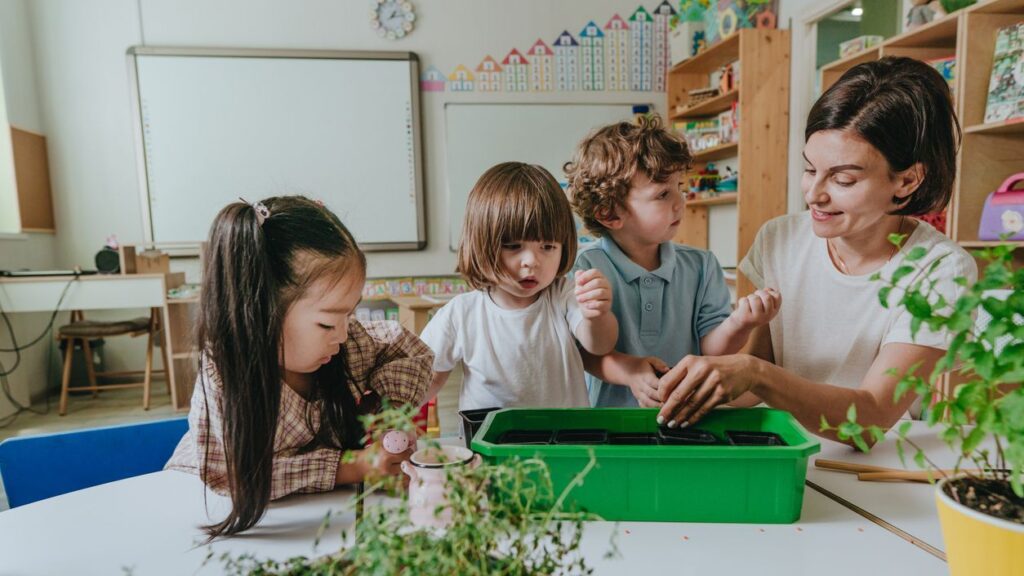Do you remember what it felt like to be a young child? Navigating a confusing and complex world run by adults who don’t seem to understand what your big behaviors are trying to tell them? As adults, it’s easy, and understandable, to forget and as a result, often feel just as confused and frustrated as little ones. Providers working with young children have a unique opportunity to be their voice, using psychoeducation as an advocacy tool by educating caregivers and educators on the unique needs of early childhood.
Why Psychoeducation Matters in Early Childhood Advocacy
Psychoeducation is one of the most effective interventions in my tool box with any client because it lays the groundwork for accessing empathy, compassion and understanding. This was especially true in my position as a social worker embedded in a preschool setting, where big feelings were often communicated through big behaviors and educators hadn’t yet learned to view this through a developmental and trauma-informed lens.
In providing consistent psychoeducation to caregivers and early childhood educators about typical early childhood development, the impact of toxic stress and trauma on young children, how young children learn to self-regulate over time, and framing behavior as communication, I was able to support them in seeing young children as children with unique needs rather than mini adults. Psychoeducation opened up conversations about what young children need to succeed, allowing me to advocate for them in a way that was also empowering and supportive to my colleagues and the caregivers I worked with.
How to Use Psychoeducation to Support Young Children and Caregivers
There are a few strategies providers can use to maximize the effectiveness of psychoeducation, especially when using it as a form of advocacy.
Build Trust with Caregivers Through Collaborative Conversations
The goal of advocating on behalf of young children is to support adults in understanding what their needs are and how to meet those needs in a way that promotes growth and healing. It’s necessary to be mindful of how you present yourself in these conversations and avoid coming across as lecturing other adults or minimizing their experience. Caregivers and educators pride themselves on knowing the children in their care and in my experience, become defensive if treated as if they don’t. Acknowledge and validate the experiences of caregivers and educators, recognize them as the experts of the children in their care and present yourself as someone who also has expertise and wants to partner with them in meeting their child’s needs.
Customize Psychoeducation Based on Caregiver and Educator Needs
If you know the caregivers and educators you’ll be working with, having an understanding their learning needs can help you plan how to present information. When I was unsure of the best way to provide psychoeducation, I asked educators what their preferences were in order to determine if it was enough to have a conversation or if providing visuals or reading materials would be needed to reinforce what was discussed.
Use General Insights Before Focusing on Individual Children
Providing generalized information to caregivers and educators before grounding your message in child-specific examples helps normalize observable behaviors and creates a frame of reference for caregivers to work from if there is an issue that needs to be addressed. For example, if you’re discussing the impact of trauma on the developing brain, starting with general information about the body’s alarm system and then moving toward how you’ve observed this play out with the child you’re focusing on can help create a clearer understanding for caregivers and educators.
Share Developmentally and Trauma-Informed Education with Adults
Part of our work in advocating for young children is helping adults understand they are not mini adults. This includes supporting adults in recognizing that trauma is in the eye of the beholder. Just because we don’t consider something scary as an adult doesn’t mean it’s not scary to a child.
This reminder helps adults pause and see the world through a young child’s eyes—essential for making thoughtful, age-appropriate decisions.
How Informed Adults Create Better Outcomes for Young Children
By advocating for our youngest clients through psychoeducation, we’re laying the foundation for developmentally appropriate, trauma-informed care and building strong support networks aimed at helping children thrive in any setting. Informed caregivers and educators are better equipped to create emotionally safe environments for young children, with long-term benefits for kids such as increased ability to self-regulate and a reduction in pathologizing developmentally appropriate behaviors.
There are also benefits for caregivers and educators as well, as being informed can increase their sense of confidence in meeting their child’s needs and create a stronger connection through empathy and understanding.
Tools like Casebook make it easier to document your advocacy efforts and coordinate care across teams—so you can focus on amplifying children’s voices, not paperwork.


